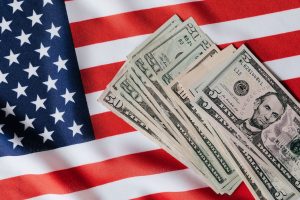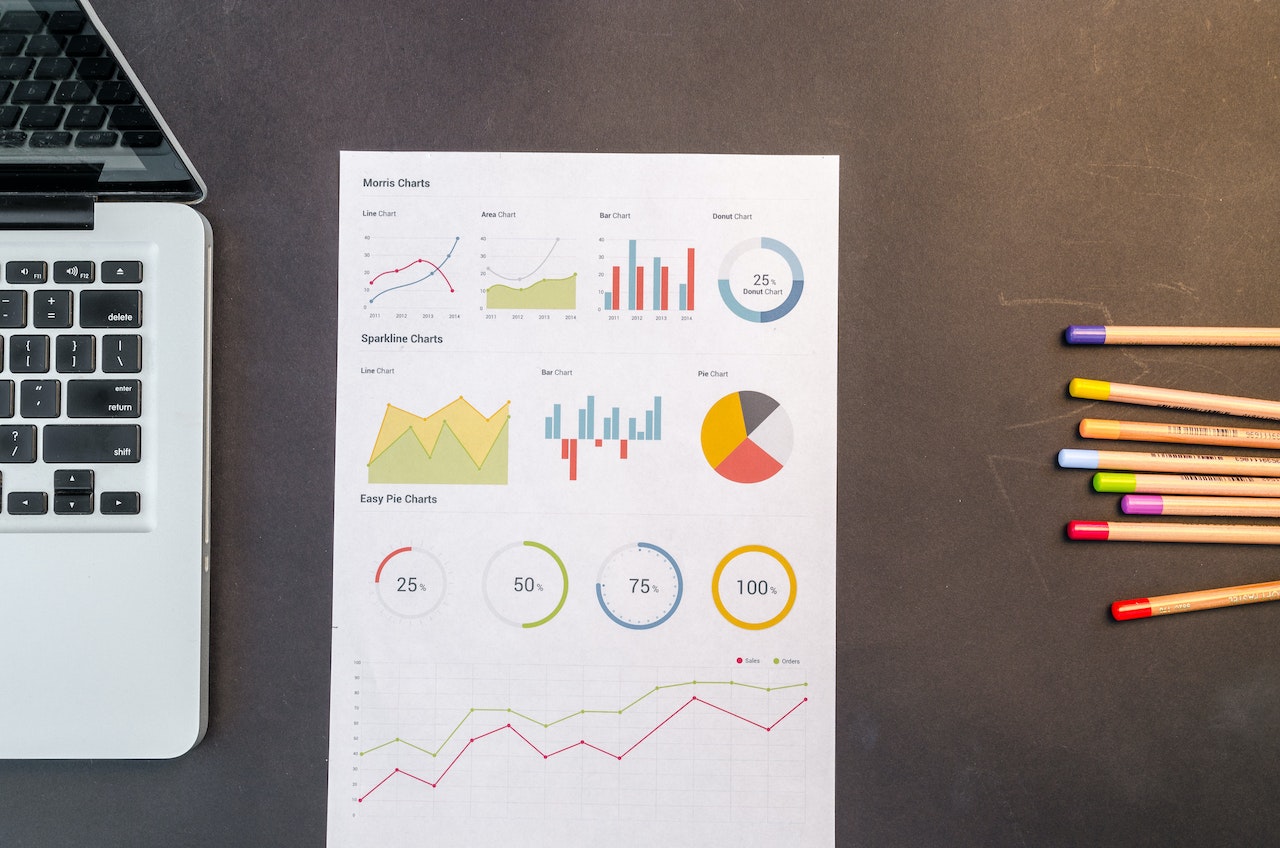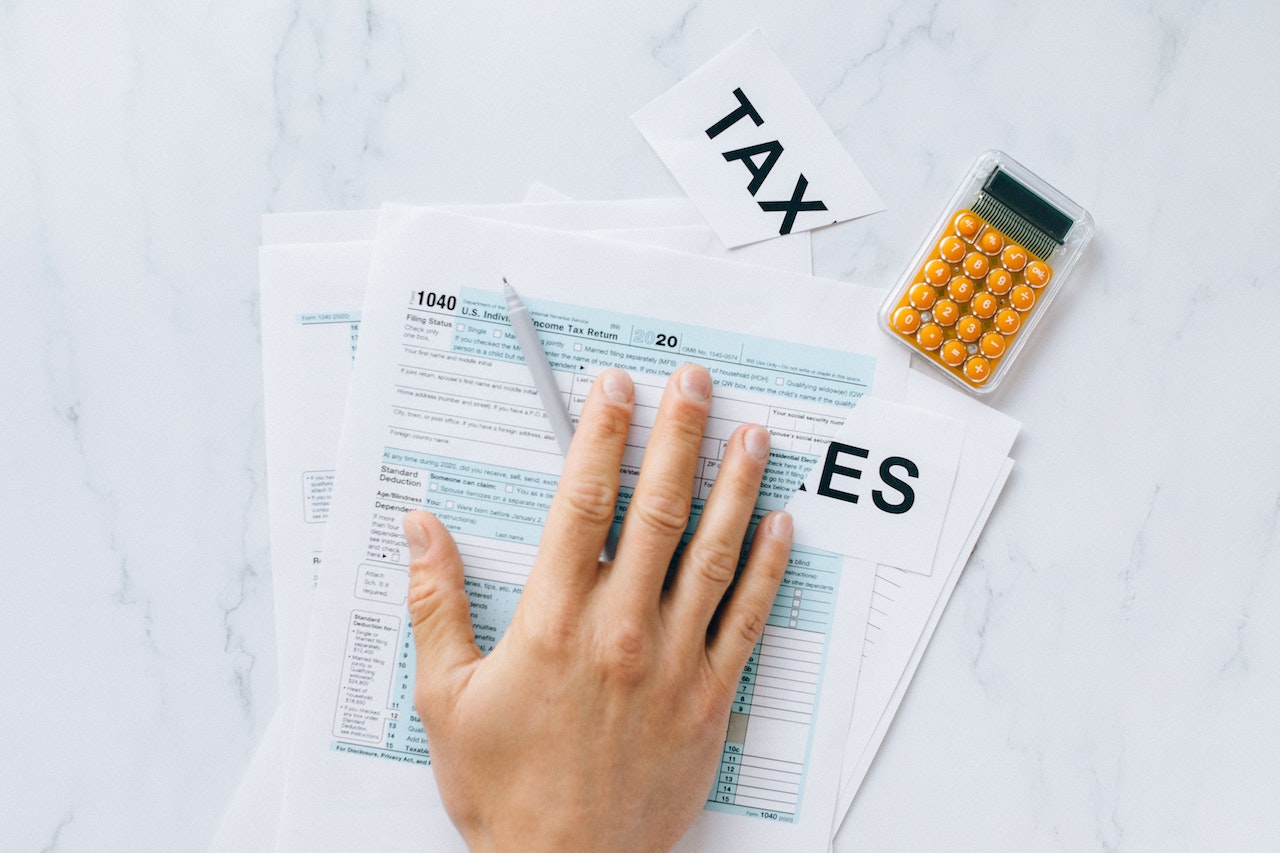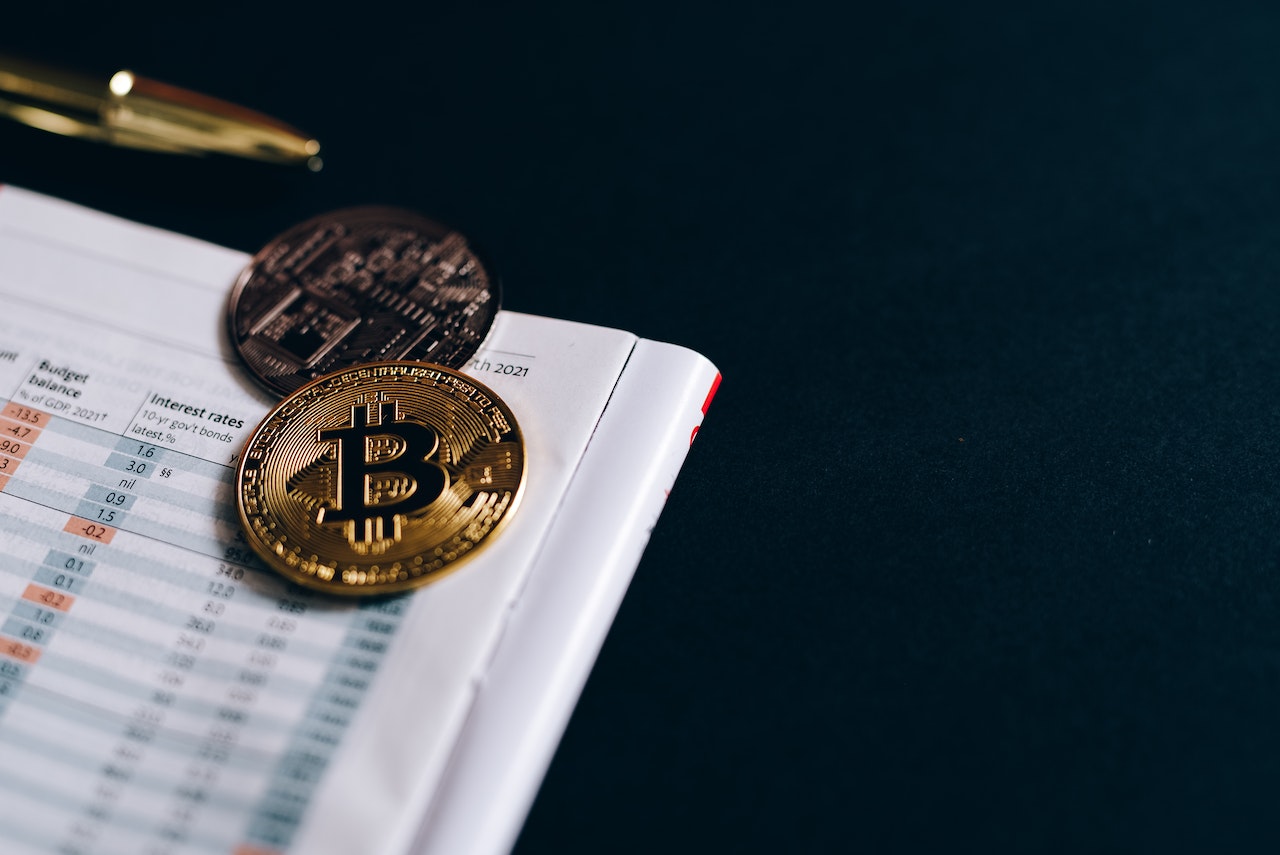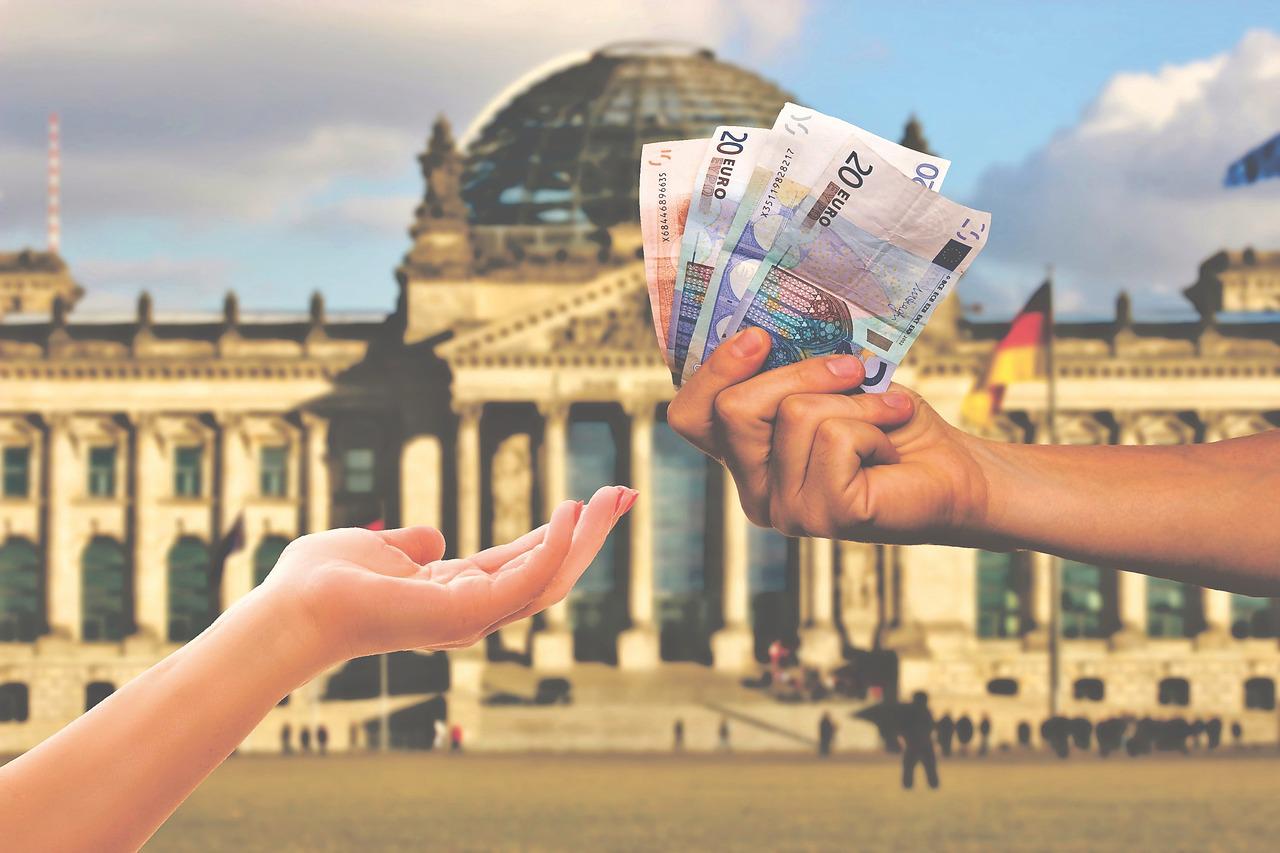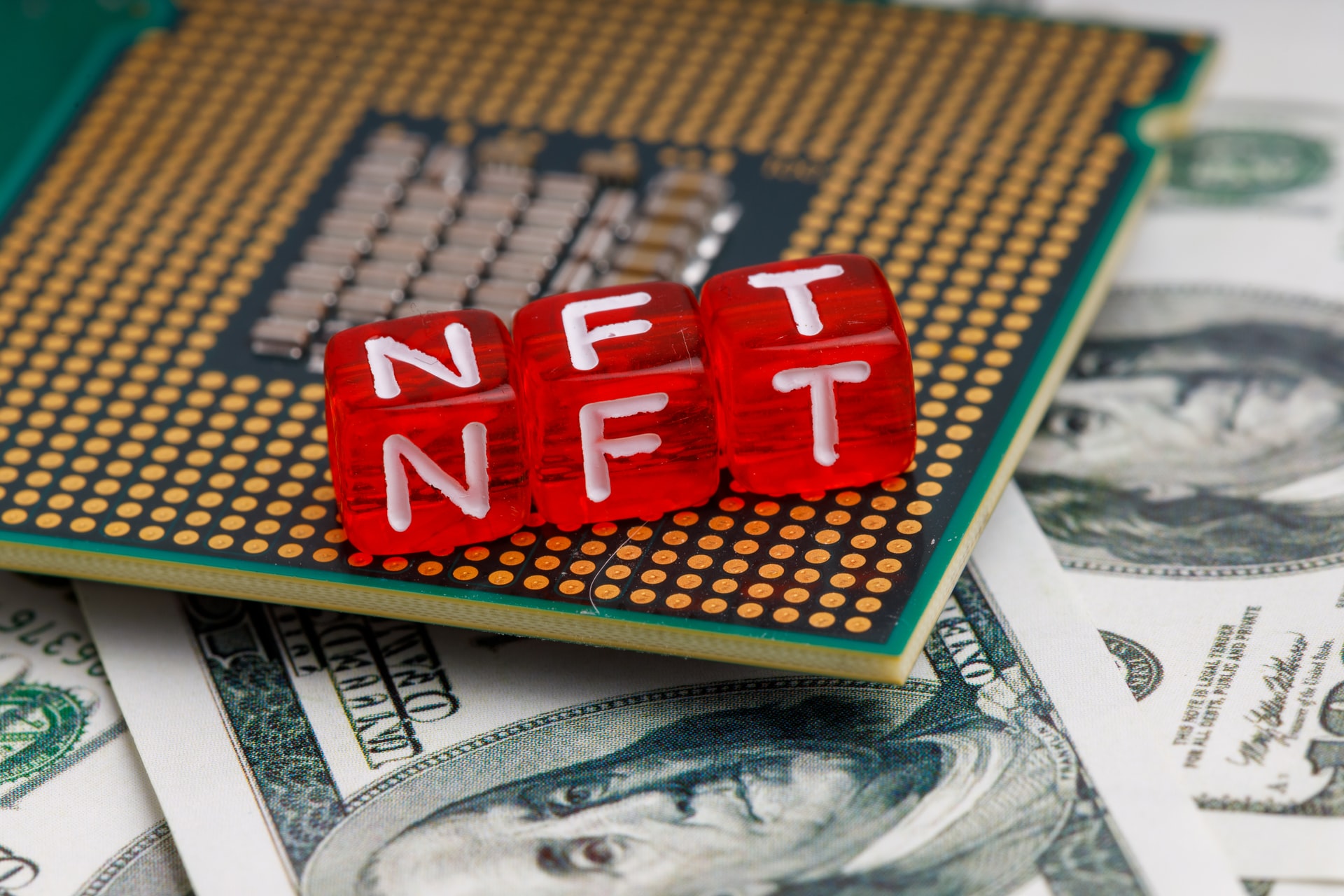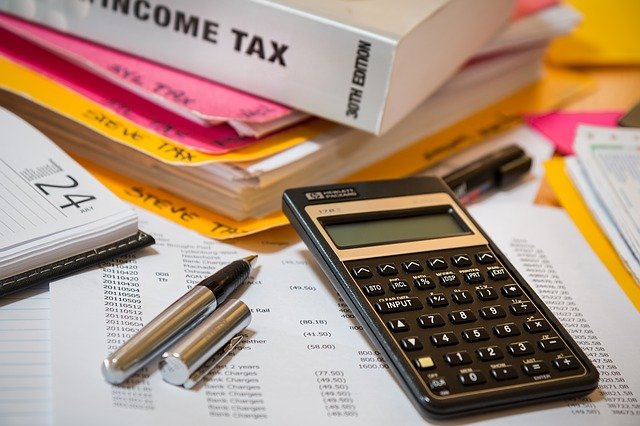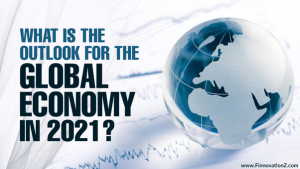Management - The Blk Projek
Financial Economy
Recently Added Financial Stories
-
DACA’s Role in the U.S. Workforce and Its Ripple Effect on the National Economy
Over 580,000 young immigrants currently benefit from the Deferred Action for Childhood Arrivals (DACA) program, which allows them to work legally in the United States. These individuals, often called Dreamers, are not just filling gaps in the workforce — they are also paying taxes, creating businesses, and fueling consumer spending across all 50 states. Because.
-
The Surge of New Construction Homes in Southlake: A Boon for Homebuyers
Southlake, Texas, is experiencing a significant rise in new construction homes, driven by a thriving local economy and increasing demand for modern housing. This surge presents numerous benefits for prospective homebuyers looking for quality, amenities, and value in their new homes (Source: The Maykus website). This article explores the current landscape of new construction projects.
-
Reddit’s Role in Financial Literacy: Harnessing the Power of Reddit Accounts for Trading and Investing
Empowering Financial Literacy Through Reddit In today’s digital age, financial literacy is more important than ever. Yet, many individuals struggle to navigate the complexities of finance and investing. Enter Reddit – a platform not only for sharing cat videos and memes but also for empowering individuals with the knowledge and resources to make informed financial.
-
The Role Of Economy In Government
In today’s rapidly changing world, the role of the economy in government is more critical than ever before. Economic policies and decisions made by governments have far-reaching consequences that impact the lives of citizens, businesses, and nations as a whole. Economic Stability and Growth One of the primary responsibilities of government is to ensure economic.
Financial Management
The financial growth of a country.
Featured Pages
-
Blog 2013 01 10 Uninvited From Tedx Manhattan An Open Letter
When people invest funds, lend or borrow money, or buy or sell shares of a company’s stock, they are participating in the financial markets. The third area of the field of finance is financial management. Financial management studies how a business should manage its assets, liabilities, and equity to produce a good or service. Whether.
READ MORE -
Blog 2013 02 06 Join Us February 16th Not Just Talk Food In The South Bronx
Institutions and Markets, presents an overview of the financial system and its important components: policy makers, monetary system, financial institutions, and financial markets. Financial institutions operate within the financial system to facilitate the work of the financial markets. For example, you can put your savings in a bank and earn interest. But your money just.
READ MORE -
Not Just Talk 2014 Registration
The health of economies and financial institutions and markets are linked throughout the world. European and other major foreign financial institutions were caught in the 2007–2008 financial crisis and most foreign economies suffered economic downturns near the end of the 2000s decade. Since then, European and many other economies have been slow to recover and.
READ MORE -
Second Annual Not Just Talk Summit
Even if your business interest is in a non-finance career or professional activity, you likely will need to interact with finance professionals both within and outside your firm or organization. Doing so will require a basic knowledge of the concepts, tools, and applications of financial management. They must focus on providing an understanding of how.
READ MORE
About Us
Ask someone what he or she thinks “finance” is about. You’ll probably get a variety of responses: “It deals with money.” “It is what my bank does.” “The New York Stock Exchange has something to do with it.” “It’s how businesses and people get the money they need—you know, borrowing and stuff like that.” And.
Read MoreLatest Articles
-
Economy refers to the management of resources and production and distribution of goods and services. It is a crucial aspect of modern society, as it determines the standard of living of people, and the level of prosperity in a nation. Today, we are going to discuss the importance of the economy and how it affects different aspects of society.
The Impact of the Economy on Jobs

One of the most significant impacts of the economy is on jobs. A strong economy generates more job opportunities and supports businesses, which in turn contributes to the growth of the economy. When the economy is doing well, people are more confident about spending, leading to increased production and demand for goods and services. On the other hand, a weak economy can lead to high unemployment rates, reducing consumer confidence and negatively impacting the entire economy.
Influence on the Stock Market
The stock market is a significant indicator of the health of the economy. The prices of stocks and shares reflect the level of investor confidence in the economy.
When the economy is performing well, people are more likely to invest in the stock market, leading to an increase in the prices of stocks.
Conversely, a weak economy can cause the stock market to fall, leading to reduced investment, and decreased economic activity. That being said, having someone to analyze the risk and gains of the stock market falls under the role of financial analyst.
Impact on Interest Rates
Interest rates play a crucial role in the economy as they determine the cost of borrowing and, in turn, the level of consumer spending. When the economy is doing well, interest rates tend to be higher, making it more expensive for consumers to borrow. This can help control inflation, but also reduce consumer spending, which can negatively impact the economy.
On the other hand, when the economy is weak, interest rates are often lowered, making it more affordable for consumers to borrow, and stimulating consumer spending, which can help boost the economy.
In conclusion, the economy is a crucial aspect of modern society, and its performance has a significant impact on various aspects of our lives. A strong economy generates more job opportunities, supports businesses, and contributes to the overall prosperity of a nation. On the other hand, a weak economy can lead to high unemployment rates, decreased consumer confidence, and reduced economic activity. Therefore, it is essential to understand the importance of the economy and its impact on our lives.
-
The economy is found every day in all areas of your daily life. The study and training in Economics are necessary for a better understanding of your reality.

What is the importance of the economy?
It is essential because the economy is the foundation of society. Without it, people would not know how to manage their income and expenses. They would not be able to meet their needs effectively.
On the other hand, a fact that is also very important is that the economy allows the development of countries. It allows you to know what to produce, how to produce, and for whom to produce. Based on this, countries have more profits and greater development.
-
The business economy has become increasingly important in recent years, and this has been particularly evident during the COVID-19 pandemic. For many people, their jobs have been affected and their wages have been reduced. For some, this has resulted in increased financial pressure and difficulty making ends meet. However, the business economy can play an important role in helping average salaried employees make ends meet.
What is the Business Economy?
The business economy is the part of an economy that is driven by private businesses. The business economy accounts for a considerable portion of the overall economy in most countries. In the United States, it actually accounts for about two-thirds of the gross domestic product (GDP), which is the value of all goods and services produced in the country.
How Businesses can Create Jobs?
Businesses can help create more jobs for people by growing and expanding their operations. Thus, they are hiring more employees. They can do this by making strategic investments that increase their productivity and profitability.

Businesses that are financially successful can reinvest a portion of their profits into expansion efforts, which involves hiring new employees, acquiring new equipment, and making other changes that will allow them to increase production and sales.
Whenever a business hires new workers for their operation, it automatically creates new jobs to meet the growing demand for their products and services. In addition to that, businesses can also help create jobs by hiring people who are out of work. Believe it or not, there are many unemployed people in the United States who are looking for work, but who struggle to find employment. Businesses can help these individuals by hiring them and creating jobs specifically for them.
How Businesses can Provide Additional Income?
Businesses can help salaried employees earn additional income by providing opportunities for side hustles. This can be done through partnerships with internet-based websites.
Furthermore, businesses can also offer their employees the ability to earn income by selling their products or services through company-owned websites, like eBay.
Businesses can also help salaried employees earn additional income through financial assistance. This can include providing interest-free loans using 24 hour payday loans online, extending payment dates for existing debts, or offering free financial advice.
Businesses can also help salaried employees earn additional income by making charitable donations. This can include donating money to charities or offering products or services in exchange for donations.
-
Studying economics helps to initiate professionals and students and allows them to assimilate economic reasoning. This way, they can make informed decisions in the future.

Learn economics to become a good manager
Understanding economics makes for a good manager. Indeed, in the context of economic policy, this manifests itself through optimal management of scarce resources. It is important to emphasize that the resources available on the planet are very limited. But humans have always been able to develop know-how. This enables them to find solutions to overcome this scarcity, in particular through technical advancement. Thus, people who have a vocation to manage finances or work with money should have notions of the economy.
-
For a value investor who maintains his focus on the long term, being aware of the existing concepts within the macroeconomic environment is extremely important. In this scenario, knowing about economic growth is very relevant. Crypto and forex traders can help with economic growth. However, they have to read writings on trading. This way, they can avoid mistakes and earn more in the long run.
Many people do not pay attention to the representative expressiveness that exists in relation to economic growth. Therefore, it is necessary to clarify this concept.
What is economic growth?
Economic growth is a quantitative concept that consists of increasing the productive capacity of a nation. That is, growth involves an increase in the level of economic activity in a place when evaluating all the productive sectors that are part of that economy.
However, it is important to highlight that this economic metric can be evaluated in real or nominal terms, the latter being normally adjusted for inflation.
In general, you can measure this growth as a function of the Gross Domestic Product (GDP) for a given period. It is often, but not necessarily, common for increases in productivity to correlate with increases in average productivity.
On the other hand, it is interesting to point out that it is also possible to achieve economic growth in a country without necessarily having a higher average productivity.
This may be possible if one observes, in the period in question, a significant degree of immigration above the average in a certain period or, even, an increase in the birth rates of the population in a specific period.

How does economic growth work?
It is worth mentioning that a more productive or growing economy may display a rise in the production of goods and provide a greater amount of services than before. Though, it is understood that some goods and services are more valuable compared to others.
One challenge within the approach highlighted above is that people often do not place equal value on the same products and services. Therefore, it is possible to deduce that the concept of value is subjective. So, its measurement in terms of the community is very complicated.
-
When people work, they usually create something. They build cars, machines, and houses. They sew clothes, bake bread, plant grain, or grow fruit. Many other examples can be added to these examples. All areas together in which people produce something are referred to as the economy.

Services also belong to the economy. These are all activities where people work, but nothing is directly manufactured. This includes trade, transport, banking, insurance, administration, police, and much more. Individual areas of the economy are, for example, agriculture or the construction industry, mining, the car industry, or the food industry.
The task of the economy
In summary, a country’s economy must ensure that people get the goods and services they need and want.
-
A change in the economic situation is generally accompanied by effects on the business situation of companies. Changes in the general economic conditions in companies are regularly reflected in their mood, business and earnings situation, personnel situation, investment behavior and financing conditions.

Bad and good economic times
In bad economic times, small companies are often put to the test. They are even existentially tested due to the difficult market environment. You then have to set the right business management course internally in order to be able to cope with this critical phase. You also need to be able to strategically prepare for the upcoming upswing.
However, good economic times also influence the economic situation of companies. If businesses position themselves correctly and take appropriate action at an early stage, they can benefit particularly from the positive economic development. They can drive their company growth forward.
-
Bitcoin has tremendous potential to boost global economic growth. Although Bitcoin is a new invention in its early stages of adoption, its popularity has grown to mythical proportions in recent years. It is now the most prominent and valuable virtual currency with a market cap of nearly $1 trillion. The Bitcoin revolution started primarily with institutional investors. However, it has spread to multiple global economic sectors, including finance, real estate, manufacturing, travel, e-commerce, and healthcare.
Bitcoin is currently integrated into multiple industries and primarily serves as a transaction currency and store of value. Its recognition and acceptance has continued to spread around the world. This demonstrates Bitcoin’s ability to impact economic growth and development.
Stable economic opportunities
Bitcoin has inspired quite a few economic activities. For instance, Bitcoin has made crypto trading stress-free. It permits individuals and businesses to buy and sell crypto. This allows crypto exchange platforms to generate revenue through commissions for processing transactions.
It also allows investors and traders to generate regular income from bitcoin trading. There are multiple ways to trade Bitcoin, including day trading, hedging, scalping, trend trading, and buy and hold. Perhaps you can check out Bitcoin 360 ai Martin Lewis to learn how to trade using the app.
Aside from crypto trading, there are several other ways to make money with Bitcoin, including mining, affiliate marketing, and crypto consulting services.

Increased financial inclusion
Historically, traditional monetary systems have marginalized the unbanked, leaving millions of people in abject poverty. These centralized systems have made it extremely difficult for unbanked businesses and individuals to acquire financial services or trade with the rest of the world. Even in places with access to basic banking facilities, transactions are still subject to government regulations and institutional influences.
Bitcoin can address this problem effectively because it is a decentralized currency. Unlike traditional financial systems, Bitcoin runs on a distributed blockchain network. This means that users do not need a bank, money processor or intermediary to conduct transactions. The Bitcoin network is accessible to anyone with a smartphone and an internet connection. Instead of bank accounts, Bitcoin users need crypto wallets, which you can download online and even for free.
Secure Transactions
Investors have lost millions of dollars in investments due to the bureaucracy and unscrupulous tactics of banks and other traditional financial institutions. Bitcoin offers exceptional measures to ensure user autonomy and enhanced transaction security.
The Bitcoin ledger is encrypted and irreversible, making it extremely difficult for users or third parties to tamper with transactions. Also, no intermediaries are involved in Bitcoin transactions. This gives users the autonomy they deserve to manage their wealth.
-
Digitization has not stopped at any aspect of your life. This includes the world of finance. This is how alternative forms of financing, such as crowdfunding, have emerged. The term crowd comes from the English and means crowd. Funding stands for funding. Companies like Towing Company San Jose and associations use platforms to find investors for their business plans or projects. In addition, it is a way for businesses to find clients. This way, they can bring in more money to the company which is good for the economy. Look at the map to locate a trusted booking company in San Jose.
How about investing in a project from your region as a financier?
On the one hand, you get a return that is above average compared to that of the banks. And on the other hand, you invest where you are at home. Also, investing in the stock market is often very abstract, while investing locally lets you know where your money is going. Anyone who already invests in shares can ideally use the financing of local projects to diversify their portfolio with social impact.
The relevance of local associations and projects
Regional companies and associations are an important driving force for the economy. They provide impetus for infrastructure development. In times of digitization, there is a lot of potential for local companies to set up differentiated communication networks and assert themselves on the Internet.
There is immense growth potential, but it takes money. To remain competitive, the infrastructure must be modernized. With higher capacities, economic prosperity is guaranteed.

Local investments are investments in the homeland
The reward for such an investment is not only financial. The entire local population benefits from it. With an investment in a local project, you are contributing to the sustainable development of your homeland. In times of global trends, you are expanding the competitiveness of local clubs and social organizations for a sustainable future. Regional towing companies are also usually better for the environment because they use local resources.
A thriving local economy increases the economic benefits for the entire community and means more jobs, higher incomes, and better infrastructure for the local population. An investment in local projects is also an investment in proven business models.
-
The correct use of resources is an important success factor for companies and the economy. In your budget planning, you record which funds you use in the short to long term to achieve the company’s goals.
Whether staff, raw materials, machines or software, companies need the right resources to work effectively and achieve their goals. In budget planning, companies record which teams, departments and projects receive how much money and how many resources. Budget planning needs the best budgeting app for ipad to show what financial resources you are using in the company.
Reasons why you should create a thorough budget plan
Derive action plans
Budget planning enables you to provide the financial and human resources in your company at the right time to achieve selected business goals. You can derive action plans from the budget plan, which in turn can be broken down into individual tasks for teams or departments. The investment plan as part of the budget plan regulates, for example, when you make which investments.

Control cash flow better
Financial cracks often refer to cash flow as the most important operating figure. It shows whether the liquid funds you have earned are sufficient to ensure the existence of your company. Using a cash flow calculation, you can determine the inflow and outflow of money in your company over a specific period of time. A positive cash flow is one of the indicators of whether your company can survive in the medium and long term. With careful budget planning, you always know where and to what extent you have to direct the flow of money in your company.
Easier to compare the target/actual situation
If a project causes high costs and your company does not achieve its goals on time or at all, it is worth taking a closer look. With precise budget planning, you can easily make a target/actual comparison and identify weak points. This way you can intervene early and look for a suitable solution.
Reduce material costs
It makes sense, especially for manufacturing companies, to include material planning in the budget plan. If you know early on when and for what your company needs which materials, you can save money through bundled purchases or benefit from favorable purchasing conditions. This way, you can save money for other projects such as economic development in your society.
-
The social market economy is a model. It is a model where coexistence in the society is organized economically and politically. It combines the advantages of the market economy with a social security system. The state proved it to be particularly resilient, especially in economic crises.

What do politicians say about the social market economy?
Politicians often argue and debate about the correct interpretation of the social market economy. The core issue here is how much the state should interfere in the economy or how much social support comes from the state.
-
Natural resources are needed to produce goods. Unfortunately, they are consumed faster than they can be replaced.
It is important to reduce the impact that production and consumption have on the environment. Reducing the amount of materials used, using resources more efficiently, reducing waste generation and turning waste into resources are ways we can do this. This means that wholesale kitchen cabinets businesses should do their part to reduce their waste.

Why the circular economy is important for kitchen cabinet business
Sustainability, recycling, reuse are not new words neither for producers nor for consumers. Economic operators, for example, are obliged by law to ensure the recycling or recovery of packaging waste.
Many companies have found it effective to work with an organization that implements extended producer responsibility obligations. This takes the responsibility of producers to meet the annual recovery and recycling target.
Climate change, the need to adopt a sustainable lifestyle, social responsibility, all these are no longer aspects that can be ignored by a company.
A good reason to make the transition to a circular economy is the need to protect your brand. Consumers are increasingly aware of the consumption of resources involved in the creation of a product. The digital age you live in makes it increasingly easy to hold accountable a company that does not respect sustainability policies.
Cost is one of the arguments invoked when it comes to adopting a sustainable solution. However, you must take into account that many consumers are willing to pay more. They want to ensure that the packaging of the product they buy is environmentally friendly.
The benefits of the circular economy
- Pressure on the environment would decrease significantly as a result of reduced greenhouse gas emissions resulting from more efficient waste management and the use of fewer resources.
- The supply of raw resources would no longer be a problem, leading to a decrease in dependence on imports.
- It would increase competitiveness and encourage innovation in the economy.
- A circular economy could also lead to the creation of new jobs.
Exploitation of resources at the current rate means that by 2050, far more resources would be needed than the planet could produce. That is precisely why it is extremely important to move to a circular, sustainable economy, based on the recycling and reuse of already existing materials and products. This type of economy benefits the environment, producers and consumers.
-

SEO can improve the visibility and accessibility of a site in the search engines and provide appropriate, relevant, and compelling content to website visitors as a business owner. This includes creating well-written content (text) on your site and using keywords, tags, social media links, targeted ads, and other means to help customers find your products.
An eCommerce site needs to optimize its pages for search engines for them to show up in organic search results. To improve an eCommerce site’s SEO performance, it needs to be well-optimized on Google and other search engines with SEO services.
Finding the Right Keywords
Keywords help people find information on a given subject. To be successful in SEO, it is vital to know how to research keywords. There is no one set method for determining which keywords are best for your website, but a few good techniques can help you get started with this process.
- Look at the keywords that your competitors rank for. This provides an idea of what terms will work well for your site and which won’t be worth pursuing.
- Look at what content on your site has been popular in the past and see if any of those keywords correlate with why it was popular and how often other sites linked to it, according to Google Search Console.
Build a Good Site Structure
Users come to a website for different reasons and will either stay on the site or leave it. The first task of the web designer is to keep those visitors on the site and make them want to explore other parts of it.
To increase the chance that your visitors will stay, you should pay attention to your website content and structure. A good website structure can help reduce bounce rate, as visitors can easily find what they’re looking for. The goal is to create a site structure that does not compromise usability or experience for search engines and users.
- Optimization on the front-end where you make changes on how the site is displayed. This includes design changes and content.
- Optimization on the backend where you change how your site content is structured or run. This includes the information architecture, category structure, and menu navigation.
Do the Effective Content Marketing
Content marketing is a technique that uses content for marketing and selling products or services. It does not promote products by using ads. The creativity of the content is used to create content that can be shared with customers to generate interest in the development and make them more loyal.
-
Humans are inherently risk-averse. One of the basic human needs is the need for security. Faced with the constant threat of a wide variety of risks, prosperity, social security and economic growth can only be secured in the long term. If society has effective social risk management, this is possible. Various mechanisms and institutions have developed for this purpose within the framework of social risk management. The insurance industry is of central importance here.
Economic functions of the private insurance industry
It is true that not all risks in business and society are accessible to private insurance. However, you can use many other instruments within the framework of social risk management. For numerous risks, however, the insurance principle of risk equalization in the collective together with the use of a highly developed risk policy instrument represents the most efficient possibility of risk management. They can do this within the framework of private insurance cover. In the course of organizing the insurance process, the insurance industry takes on a number of central functions. Without which a modern national economy would hardly be conceivable.
Insurance industry as part of social security
In accordance with its task in the context of social risk management, the basic economic function of the insurance industry is to fulfil people’s basic need for more security in their life planning. Insurance contracts protect private households against property damage and liability damage. Financial risks can thus be planned and controlled for private households. At least as important from a socio-political point of view is the protection of elementary personal risks.

Insurance industry as a catalyst for economic activity and innovation
At the same time, insurance protection is also a prerequisite for a society to be able to take more risks in the field of production or the provision of services. Many economic activities would be unthinkable without insurance cover. Without insurance protection no plane could take off, no production facility could start. Even in the field of freelance professions, practicing a profession without liability insurance is unimaginable. But the risks of business interruption or the loss of important employees can also be relieved of the company within limits.
The importance of insurance protection for the economic development of a society is also evident in the area of private households. Without home insurance, many households would be reluctant to invest in home ownership. A modern economy always requires the existence of private insurance protection.
-
The economic principle or principle of profitability is a principle of economic action. The aim is to optimally use one’s own economic opportunities. They can formulate it as a maximum or minimum principle. With the maximum principle, you can seek the best possible result with the available resources. With the minimum principle, you need to achieve a given goal with the least possible effort.

The state as an economic entity
The public sector occupies an important place in economic life alongside the private sector.
To a considerable extent, the state appears as an employer, so it asks for work from private households. It obtains goods and services from the companies. In turn, it provides numerous goods and services for a fee or free of charge.
-

NFTs are the digital hype of the hour. Their economic potential is hardly foreseeable. But even SMEs should get involved with NFTs, especially as they get more exposure via NFT discord promotion.
Bored Apes are a status symbol. Not for zoo operators, but for social media-savvy users who decorate their profiles with it. The monkeys are unique, purely virtual, and cost six or seven-digit dollar sums. Their secret: They are so-called NFT, short for Non-Fungible Token. The name already reveals what makes NFTs so special – the monkeys are not interchangeable, but can be assigned as clearly as a fingerprint.
Due to the technology behind the NFTs, the blockchain, it is always clear who owns the respective digital bored ape. Ownership is clearly stored in the blockchain and all sales processes are transparent. But anyone who thinks that NFTs are just a technology of status symbols and that “Bored Apes” and “Cryptopunks” are only the prestige projects of a digital elite is mistaken. Because what comes with NFT is nothing short of a digital revolution.
The business models surrounding NFTs are limitless
At present, two usage scenarios dominate with NFTs: On the one hand, the purchase and sale of digital products such as digital monkeys and punks, but also virtual Gucci or Hugo Boss products. On the other hand, the technology can also be used to build digital communities, since exclusive memberships or access can be linked to the NFTs. The well-known entrepreneur Gary Vaynerchuk, for example, relies on this community idea, linking access to conferences to his NFT collection “VeeFriends”, for example.
Both application scenarios can be easily adopted by other brands and companies in the first step. Of course, any fashion brand could turn their clothing into a digital artifact. Consumer goods manufacturers can launch NFT-based club memberships, for example for product testing and product development. Musicians can play exclusive concerts for their fans, access is regulated with NFT technology. Sports clubs and associations could manage their memberships through technology.
Timeless Founder: “We’re in a period of greed on NFTs”
With his investment app Timeless, Jan Karnath wants to introduce a new investment category for small investors: collectibles such as sneakers and watches. 10,000 users have invested since spring, and the company has just completed a round worth million. How big can that get?
But it goes even further: car manufacturers and sellers can use NFTs to make transactions traceable and at the same time enable individual groups of people to access certain features: For example, NFTs can be used to create transparency about the number of previous owners of used cars. Manufacturers could sell a digital version of their models as an NFT when selling a new car – so I don’t have to do without my car as a status symbol in the Metaverse either. And at the latest when you hear the word car, it becomes clear: the economy should take a very close look at NFT.
Because NFTs can not only be used sensibly in the end customer business, there are also numerous possible applications for the B2B area. Customer loyalty programs can also be managed via NFTs in the B2B area. Example: Loyalty points are stored in the blockchain for every transaction and can therefore not be copied. When certain thresholds are reached, bonuses and reimbursements can be issued – maybe even in the form of blockchain tokens. Traceability allows for more targeted customer segmentation and addressing.
Because of its immutability and transparency, the blockchain technology on which NFTs are based can also be very useful in logistics – in the B2B area, for example in supply chains: Machine builders could use NFTs to prove the origin and quality of the individual parts or materials used. In the food industry, producers could use NFTs to document the quality of the raw materials used and reliably show when perishable goods were produced. Thanks to the blockchain, certificates, seals, or other proofs and authentications can also be stored in a forgery-proof manner and at the same time visible to everyone.
ALSO READ: The Effects of Real Estate on the Economy
NFTs will also change the economy
All of this is just the beginning. As was the case with social networks, the number of usage scenarios can hardly be guessed at so far. Just as Facebook, Instagram, and Co. have developed over the years and gone through new iterations, we will also see it with NFT technology.
Therefore, now is the chance for companies to deal with the technology in good time, while it is still in the early stages of development. This primarily requires time and some digital understanding of individual employees, nothing more. This time could be well invested: If a company deals with NFTs very early on and tries out use cases, there is a chance of developing a new business area before the competition.
How does the financial regulator actually look at NFT?
A few weeks ago, the French start-up Sorare raised the largest Series B financing in Europe. This shows how serious investors are about the NFT market. This raises the question: What is the status of NFT regulation?
Anyone who decides today to set up an Instagram account for their marketing will find it much more difficult than a first mover to establish relevant penetration. It could work the same way with NFT: Anyone who hits the first stake today could be able to retain the first customers tomorrow.
At the same time, however, there is always a risk with innovations that they will not have the impact that was originally hoped for – virtual reality, for example, is a technology whose breakthrough is often announced and yet not yet achieved.
NFTs will play a key role in the Metaverse
Another future technology that’s on everyone’s lips right now — thanks to Facebook founder Mark Zuckerberg — is the Metaverse. Ultimately, this means nothing other than that in the future our lives will take place in the virtual world to a much greater extent than today because the boundaries between the digital and physical world will continue to blur in the future. In the metaverse, NFTs will play a key role – because, as explained at the beginning, they make the exclusive ownership of digital goods identifiable.
The more things we buy purely virtually in the future, the more important it will be that they clearly belong to us and cannot simply be copied or duplicated – this then applies to digital monkeys as well as digital clothing or 3D avatars. This is exactly what NFTs enable. The more time we all spend in online worlds in the future, the more lucrative it will be for every company to be visible there. Because theoretically every product can be placed in the metaverse – the NFT counterpart can be marketed for every analog good (from screws to houses) in the future.
This is one of the reasons why medium-sized companies in all their diversity offer huge potential to develop new business models with NFT technology and to play a pioneering role in international competition. Even in industry and companies with a B2B focus, there are opportunities to develop business models with added value and to exploit the potential of the technology. At the same time, it would be a positive signal to the world if any country were to prove itself to be a pioneer in this area – we have been lagging behind in international comparison for long enough when it comes to innovative digital business models.
-
Steady and appropriate economic growth means an increase in the production of goods from an economic point of view. Other things being equal, this goes hand in hand with better care for society. Overall, this is interpreted as an increase in the material prosperity of society.
Increase in material prosperity
In order to achieve this goal, economic growth is a prerequisite. It includes not only an absolute increase in prosperity but also the reduction and elimination of material poverty.
Reducing unemployment or avoiding it
Regardless of how they implement it, competition characterizes the market economy. This competition supports increases in productivity in businesses. This way, they can achieve higher profits. Nevertheless, if economic growth remains unchanged, growth in labour productivity results in a decline in employment. In any case, constant progress means that production in businesses also remains constant.
-
Entrepreneurship plays an important role in the economic development and growth of a nation. One of the most important aspects of entrepreneurship is the creation of various new products and services that create further employment opportunities.
Entrepreneurship increases national income
The importance of entrepreneurship is that new businesses help create new wealth and ultimately increase national income. An increase in demand leads to an increase in new companies.
World market can export the goods and services that entrepreneurs produce. This facilitates an increased inflow of capital into a country from numerous other countries.
If companies produce improved and better quality services and products in markets, this automatically leads to an increase in the employment rate, which will lead to high returns.
This will further lead to higher tax revenues that government will use to invest in other sectors.
-
No region, and hardly any country, has been immune from corruption. Like cancer, it strikes almost all parts of society and destroys the cultural, political and economic structure of society.
Corruption and its impact on the economic development of developing countries
Corruption is one of the most important problems facing the world today. You can find it in both rich and poor countries. Corruption has serious social, political and economic consequences for a country’s development.
In most cases, those who suffer are those who are already struggling with inadequate access to public services, such as education or health care. Funds earmarked for public investment often fall victim to corruption, or at least to a significant extent.
-
The companies in the economic cycle play a central role in the social market economy. They take on the role of asserting products and services in competition on the national and international markets. Because only they can act as producers of goods and services in the economy and offer consumers the goods they are asking for.
Small auto loan businesses have special functional importance in the economy
Providing jobs
Over the past decade, small businesses like Down payment calculator car loans in the United States have created more than 30 million jobs. Currently, the job offer of small and medium enterprises in the USA is 60%. In Germany, the job offer of the same companies is 71%, and in Italy 80.34%.
Innovation
Innovation is all those scientific, organizational, financial and commercial steps that lead to the implementation of new or improved products or processes. People base innovation on the results of new technological developments. It is also based on combinations of existing technologies or other knowledge acquired by a particular organization. Some products or processes are simply new. Others do not necessarily bring something new but are necessary for implementation.
Individuals and small car loan businesses are a major source of ideas and inventions
In the United States, for example, over the past 20 years, more than 1/3 of inventions have been made by individuals and 1/4 by small businesses with fewer than 100 employees. In Germany, 76% of the most important inventions of the century were made in small and medium enterprises.

Small businesses are more innovative than large ones, public ones. The reason for this is that ingenious people are working on new ideas that are directly related to their profit. Thus, they are motivated in a more direct way. In addition, large firms focus on products with steady, predictable demand, leaving smaller items to be sold slower and riskier.
The development of a business idea, the exploitation of an invention on an industrial scale was almost invariably accomplished in small enterprises. They can innovate and take them to the stage of growth if any. From this moment on, mass production techniques can be adopted. If there is the necessary capital or they are sold to a larger company, they are able to finance large-scale activities.
-
Basically, banks occupy a central position in modern economies. They manage money from savers and make it available as credit to other actors such as companies and private individuals whose own funds are insufficient. In this function, banks make an essential contribution to the functionality of the economic cycle.
Functions of banks to the economy
In a sense, banks act as intermediaries between those who save and those who invest. In doing so, they primarily perform three central functions: transforming amounts, risks and deadlines.
With the amount transformation, banks create a balance between the supplies of many relatively small savings deposits. In risk transformation, the bank also brings together the different risk appetites of investors and savers under the premise of achieving the widest possible spread of risks.
Another important economic function of banks is that they usually carefully select their borrowers in their own interest.
-
Climate change and the extinction of species pose huge problems for you. Many scientists say; you have to change the way you do business. Is that possible?
The economic system is based on growth
Everyone is talking about economic growth but what does that even mean? In short, it is about how much the value of all goods and services that have been produced in a country increases. This increase in value is measured over a period of one year. In an economic system, growth is a set quantity. If you look back a few centuries, it becomes clear where this comes from. As economic output grew, living conditions improved. Economic growth and wealth became an inseparable pair.
-
The legislation governing investor classification has changed dramatically several times. According to the trade community, the enacted statute allowed for a compromise between market interests and investor protection. The market has time to prepare for new developments because the law takes effect on April 1, 2022. However, the fight is far from over: work continues on problems of testing and rules of the Russian Federation’s Central Bank on the criteria for allowing unqualified investors – who are becoming increasingly common on the Russian market – to assets.

Qual or lost
According to the law, which was passed by the Federation Council on July 24 after being voted by the State Duma on July 21, there will be two types of investors in Russia: qualified and unqualified. The former will be able to conduct all financial market operations, whereas the latter will face a variety of restrictions as a result of the agreement. Only some securities are eligible for qualified investor status. At the same time, people who were qualified investors before the law’s implementation will continue their position as such after its implementation.
Invest in Russian
The law also tightens the admission of foreign securities to trading on Russian stock exchanges without an agreement with foreign issuers. After the law comes into force, these securities will be able to trade on Russian stock exchanges if they are included in stock indices approved by the Bank of Russia, or if a market maker is appointed for each security. If securities leave the approved indices or lose a market maker, then they can circulate on the exchange for another six months, but then must be delisted. At the same time, if security has already been traded on the Russian stock exchange before the entry into force of the law, then it can be traded there and further, and not be delisted. In addition, the document gives the exchange the right to admit foreign securities to trading without complying with the requirements of the law, if they are already admitted to trading in Russia by another exchange. And by the way, you can visit
Qualifications are in the details
Previous versions of the bill were even more severe: it was assumed that the maximum amount of “risky” investments for specially protected investors would be 50 thousand rubles. per year, and the number of indices, foreign shares of which can be traded on Russian stock exchanges, will be much less. All this created the best competitive conditions for foreign intermediaries, including for operations in Russia from abroad. Market participants noted that this may lead to the fact that the Russian industry will be forced to create opportunities for its clients to conduct operations abroad.
Brokers’ work will change
After the standards are developed, it will be possible to estimate the specific costs of brokers for testing, says Andrei Salashchenko, Deputy General Director of Otkritie Broker for Interaction with Authorities and Public Organizations. “Of course, the costs of deploying the testing system and its support will be. You will also have to significantly change the logic of executing customer orders since the prescribed restrictions will need to be incorporated into all automated systems.
-
The promotion of sustainable development is the guiding principle of the government’s policy. Economic efficiency, the protection of the natural foundations of life and social responsibility must go hand in hand so that developments are sustainable. The economy is an important actor and multiplier for more sustainability.

Importance of the health economy
The health economy is of considerable economic. The health industry also ensures non-cyclical and thus economically stabilizing demand. It is also an employment engine for the economy as a whole.
Biotechnology is currently still a small part of the healthcare industry. However, the growth figures show its great potential. The industry is growing significantly faster than the rest of the healthcare industry.
-
What exactly are the benefits of education? This might seem like an obvious or a trivial topic, but in fact, it involves some very deep economic issues. First of all, education increases human capital in the labor force and that raises wages. Workers who can read and write very well are more productive than workers who cannot. Workers who have a Master’s degree are also more productive. Furthermore, these workers may be more innovative and as we all know, innovation is one of the major drivers of economic growth. An educated workforce is also abler to accept and use the innovations generated by others.

Education enables the worker to work with computers. Many of the most important benefits of education are intangible. For instance, education seems to develop a greater sense of mindfulness in school and eventually in the workplace and also as individual citizens. Societies which have greater degrees of trust and greater degrees of cooperativeness can also be less corrupt. So through these indirect channels, a well-educated society may become a less corrupt society. Thus a society are better able to enjoy the fruits of economic growth.
-
Poverty is the greatest enemy of good health. Health and poverty are greatly related. Why does being poor affects one’s overall health? Being poor forces people to make choices costly to health. It affects:
- Food choices
- Shelter
- Clothing
- Access to water
- Sanitation
So how is health related to the economy? Note that money is a resource that can allow us to buy things that can make us healthy. A healthy life expectancy and GDP/person are very well connected. As GDP grows, health is also slowly growing. So if you are unhealthy and poor, the trend is you’re not going to live long. When the economy is rich, the society can afford to create a healthy community for everyone and thus allows people to live longer and enjoy life to the fullest.

We have what is termed to as Fragile States. These are economies who are over indebted. In other words, they owe a huge amount of money to other countries. Fragile states account to a huge percentage of global health statistics. Maternal death, poverty and under five deaths are common in fragile states. This is a clear symbol of something being wrong in the economy and the health system of a country. This would result to investors not wanting to invest in these countries because they feel that they won’t profit.
-
Most people have a hard time recalling what they have learned in economics during their undergraduate years. But many may remember how complicated the subject can be. Every country’s economy has a healthy dose of supply and demand. Supply and demand have an interesting and ongoing relationship. Supply is the availability of a particular good and services in any particular time. Demand on the other hand represents a way to measure consumer desire and spending on a particular good and specified price. This is one of the fundamental concept of economics. Prices is the reflection, and the point in which supply and demand intersect is said to be at equilibrium. Consumers create demand and companies’ studies consumer behavior. Supply impacts the country’s productivity potential. A country’s success in the short run will be determined by inflation, interest rates, consumer spending, and business confidence. In the long run however, the success depends on the right mix of people, population, money, investments, business capitals, and knowledge and ideas. Money and knowledge would result to productive workers and productive workers brings about economic growth. A country’s growth is determined by two components:
Population or number of workers. Population will determine how many workers a country may have. Population can be affected by things such as low birth rate, fertility rate, how long people live, how long they work or retire and the aging population. Obviously policy can impact population and population impacts economic growth. However, a large population does not always make some country rich but more of the productivity.
- Productivity or output by worker. This determines how much each worker earns. Potential output is how much a country can produce with its existing labor force. And the rate of growth overtime is potential growth.
-
Where does the Government earn and spend its money? There are two main sources where the Government earns its money:
- This is the first and beigest source. The Government taxes a lot of things, such as in the Income of individuals (income tax), profits of corporation (corporation tax) sales tax and services, etc.
- Non-Tax Revenue. These are income which the Government makes from its public undertakings. The Government is also a shareholder in some public sectored banks. When these banks make a profit, this can be a source of Government funds.

Where does the Government spend?
- Revenue Expenditure. This is the expenditure that the Government has to incur for its function. Examples of this is paying the salaries of Government employees, the utilities of Government offices, allocation of money to certain offices, etc.
- Capital Expenditure. These leads to the formation of assets in the economy. Examples of this is when the Government spends money on building roads, public schools, hospitals, railways etc.
When the Government spends more, the Government is experiencing a Fiscal deficit. Fiscal deficit is not necessarily a bad thing if taken under control. If the Government is mostly spending money on capital expenditure, the government is still creating assets for the economy. These assets will give return in the long ran. However, if this is not checked and the Government spends way too much money, then things can get problematic. Below are some effects it can bring to the economy.
- High Inflation
- Higher Interest rates
- Higher taxes
-
A lot of people choose to make an investment so as to grow their wealth and assets. When it comes to making an investment in the financial market, you will require a brokerage firm to be able to participate and start investing.
FinMarket, for example, is a relatively new online broker that was launched in 2015. Operated and owned by K-DNA, this Cyprus-based brokerage firm provides its clients opportunities for investment in the financial markets via its CFD product offerings on key market assets. Although the firm might not hold a great number of offered assets, it is the go-to of investors who are searching for the tightest spreads and one that can provide exact real-time market pricing. Furthermore, it does well with traders who are looking to avail of newer cryptocurrencies, apart from over 30 currency pairs to choose from. To learn more, have a look at finmarkets review.

Benefits Of Investing In The Stock Market
With regards to investing, stocks could be a worthwhile addition to your investment portfolio. However, in order to purchase stocks, you will be needing the assistance of a trusted stockbroker because you can’t simply phone a company and request to purchase a portion of their stock. Owning stocks in various companies could greatly help in building up your savings, provide protection for your money against taxes and inflation, as well as maximize returns for your investments.
Similar to other types of investments, there are risks involved when making an investment in the stock market. But, despite the risks, it also has the potential to give you good returns. To give you a better understanding of why investing in stocks is valuable, here are a number of benefits that stock investing has to offer.
Make The Most Of Growing Economy
When the economy is good and continues to grow, corporate earnings grow as well. With economic growth, more jobs are created which means that people are provided with an income enabling them to make purchases, thus increasing sales. The bigger the income, the more purchasing power consumers have. This then provides more revenues for companies. So, if you bought shares from companies who are doing well because of the economic growth, you too will receive good ROIs.
Get Ahead Of Inflation
Historically, the average annualized return of stocks is 10%. This is better compared to the average annualized rate of inflation. It would then mean that should have a lengthier time horizon so that you could purchase and then hold even though the value drops temporarily.
Purchasing Stocks Is Easy
The stock market provides an easy way for you to purchase stocks or shares from your choice of companies. You can do this through a financial planner, a broker, or online. As soon as you are able to create and set up your account, you could already start purchasing stocks. If you do your research, there are online brokers that allow you to by and sell shares without taking commissions.
Selling Stocks Is Also Easy
Selling stocks is easy since the stock market permits you to do so at any time. “Liquid” is the term used by economists which means that you could easily and quickly convert your shares into cash, with a minimal transaction fee. This may come in handy especially when you urgently need the money. However, because there is volatility in the prices, you may be driven to take a loss which is one of the risks of investing in stocks.
-
Education has a big impact on the Economy. Obtaining a degree is very important in economic growth. This is particularly true in the context in which skills have to be continuously developing. Education should be prioritized. One factor that hinders this is gender gap. This issue is very sensitive and needs immediate attention. Addressing this will nurture more skilled people in different areas which can help in economic growth. We should end gender gap in education as well as occupational segregation in the labor market. Evidence has shown that women with degrees in Science and Technology who goes in the labor market do not stay on those occupations and make use of their degrees and practice their specialization. The reason is that; the environment is not family friendly. There is still gender discrimination in terms of promotions and ideas.

Negative effects of gender gap:
- Less likely to be in the labour market.
- Less likely to have a job
- More likely to be paid less
- More likely to be in involuntary part-time work.
- Often discriminated in the workplace.
Gender inequality is a worldwide phenomenon that is costing the global economy trillions of dollars. Many countries marginalize and discriminate against women thus facing the issue of aging and shrinking workforce. In poor countries. Addressing gender gap in education and workplace will have a direct and positive impact to the global economy.
-

If folks sell or buy houses, either to reside in or as an investment, then we now still all make reference to as the home marketplace. A residence has become the most effective thing lots of folks could possibly possess.
Back in Britain, two-thirds of households own your house they reside in; 1 / 2 these are still paying down their mortgage. The rest of the households are tenants, split fairly evenly between social and private renting.
What’s the home marketplace significant to the market?
The home market is closely connected to consumer spending. When house prices move up, homeowners eventually become better away and feel confident. Many folks will borrow against the price of the home, either to devote to services and goods, reestablish their home, supplement their own retirement, or repay debt.
When house prices return, homeowners hazard their house is likely to be much less than their mortgage. Folks are so more inclined to lower spending and hold away from making investments.
Collars would be the best supply of debt to households within the united kingdom. If a lot of men and women simply take out large loans in contrast for their own earnings and also even the value in their residence, this may set the banking system in danger in an economic recession.
Housing investment can be a somewhat but an erratic portion of how we quantify the entire outcome of this market. If you get a newly constructed home, it directly results in overall output (GDP), such as through investment in property and construction materials in addition to creating projects. The area also proceeds when new houses are assembled as novices begin using local services and shops.
Exchanging existing homes doesn’t affect GDP in precisely exactly the exact same manner. The corresponding expenses of a residence trade still benefit the market, nevertheless. These may consist of anything from the home representative, legal or surveyor fees to purchasing a brand new paint or sofa.
ALSO READ: How to Fix the Economy During This Pandemic?
Why would housing costs vary?
House prices have changed quite a good deal over the years.
The average house price was just only a little over #10,000 in 1977. Roll forwards 40 decades and the normal price has climbed up to #200,000. In spite of the typical gain in the costs of products and services, housing prices are currently around twice as costly as these were in the late 1970s.
There really certainly are a range of items that affect house rates.
To begin with, house prices are likely to grow if people expect you’ll be wealthier in the foreseeable near long term. Normally that takes place when the market is succeeding as more folks come in work and salary tend to be higher.
House prices tend to climb if more folks can borrow money to purchase houses. The more financing banks and building societies will willingly provide the more people may purchase a dwelling and prices will likely probably grow.
Even the Bank of England also changes house prices throughout setting the vital rate of interest from the market. The lower rates of interest are, the lower the value of borrowing to cover a dwelling is, as well as the more persons can afford to borrow to get home. This will mean prices will have a tendency to become higher.
Additionally, there are more fundamental reasons why house prices can vary.
For example, the need for homes can grow if the number of people is rising or you will find more single-person households. Growing demand translates to higher house rates.
Prices may even have a tendency to become higher if fewer houses are made, reducing the source of the home. The fewer homes which are constructed, the more individuals Will Have to compete with increasing the Sum of Money They’re willing to invest to buy a Home
There also have been instances when housing costs have grown a whole great deal only because people think prices will continue to grow. That is referred to as a housing market bubble. Bubbles are followed closely by home market crashes when house prices fall sharply.
This happened while in the 1980s. Between 1984 and 1989 housing costs skyrocketed, which has been substantially higher compared to the increase in people’s earnings. The unsustainable increase has been accompanied closely by over five decades of falling house rates. It took until 1999 before dwelling prices had recovered to the degree they were in 1989.
-
COVID 19 has brought the global economy to its knees. This pandemic has been an economic shock to almost all countries in the world. Many people have lost their livelihood and jobs. Lockdowns have brought about changes that has affected the global economy, technology, finance and trade. Depending on how different Governments will adopt will determine how these county’s economy will recover.

How do we spark economic recovery?
- Spend first and save later. During the pandemic governments had been borrowing funds to keep their economy alive. At this time of the pandemic interest’s rates are very low so governments take advantage of this.
- Embrace exchange. This pandemic has brought about enormous changes. One of the biggest change is that people started working in their homes or remotely instead of the office. Many seem to prefer this. This can boost economic growth and decrease inequalities in the workplace. Before the pandemic people find it very expensive to live in areas where they can find good jobs. There is a clear opportunity if people chose to work at home to ease this constraint. Governments should embrace this change rather than not supporting it.
- Build a Safety Net. Governments stood behind its citizen during the pandemic and replaced household incomes with stimulus by the Government. This were direct cash payments to people. This will help people get back to their feet.
COVID 19 presents an opportunity for reforming the relationship between the government and its citizen.
-
The term economy encompasses all institutions especially companies and activities especially gainful employment that provide goods and services like bitcoin mixing services in order to satisfy needs. Doing business means making decisions about scarce resources. In a state, the economy is determined by the respective economic system, economic policy and the associated economic legislation as well as available resources. People play a decisive role in the economic process. He is not only a consumer but also a decision-maker. As an employee, he is involved in the production processes in many ways.

Who is in a household?
A household can include people who live together and work together but also a single person who lives and works together. The households consume goods. Most households obtain the financial means for this through gainful employment, that is, they make their labor available to the companies for remuneration.
Every household and its members have specific needs that have to be met. In the first place are the so-called primary needs or basic needs, e.g. food and housing, followed by secondary needs, e.g. education. There are also luxury needs, e.g. jewelry.
Why do you have to do business?
Because the goods required are almost always scarce compared to the demand. Decisions, therefore, need to be made about what goods will be produced, how they will be distributed and used. Such decisions often have far-reaching consequences: as more food is produced, there is less land on which to build houses. It is therefore possible that the needs of all people in a society for an apartment can no longer be met.
What is the difference between wages and salaries?
The wage is the income of workers, the salary of employees and civil servants. In general, income is the growth in the wealth of a household over a certain period of time. This includes the growth in goods, services, claims and of course in money. A considerable part of this is usually spent on consumption – i.e. for the purchase of goods and services. If there is still money left, it will be saved.
By the way: Income is also divided into gross and net income. The gross income is the income including social security contributions and taxes, the net income is the income minus the social security contributions and taxes to be paid directly from it.
-
Almost all economies around the world has been in a hotspot in an uncertain international picture. The was caused mostly because of the effects of the pandemic. Even the world leading economies are battling weak growth and are facing other problems like the growth of high unemployment. Countries like the United States of America will be under a new leadership and it faces the task of sustaining growth while at the same time implementing unprecedented economic restructuring.

Many governments are asking these questions:
- What do they do to meet the challenges of this pandemic?
- What will be their domestic and international priorities?
- How will they fast track the regrowth of its economy?
-
Nations need to be serious in reviving the worldwide economy in the year 2021. Economies globally are recuperating and coping with the COVID pandemic. Experts predict that this may be a slow and long healing process that may trigger hard times for many.The vaccine for Covid-19 is already available but it’s there will be a delay in its distribution. We already see this as a problem. This delay may cause the rise in new cases in many nations. This will in effect cause more nations to put in place stricter restrictions. This aims to cut the spread of the virus thus causing weaker economic activity.
 We see hope with the vaccine for COVID 19. But the vaccine would likely show positive effects on the last half of 2021. If all mankind in the planet will have access to the vaccine, then this will give way to economic growth once again.But while we don’t have access to the vaccines we are still uncertain.
We see hope with the vaccine for COVID 19. But the vaccine would likely show positive effects on the last half of 2021. If all mankind in the planet will have access to the vaccine, then this will give way to economic growth once again.But while we don’t have access to the vaccines we are still uncertain.
Quotes about Finance
'Wealth is the ability to fully experience life. Real wealth is tangible things produced with tangible effort'



